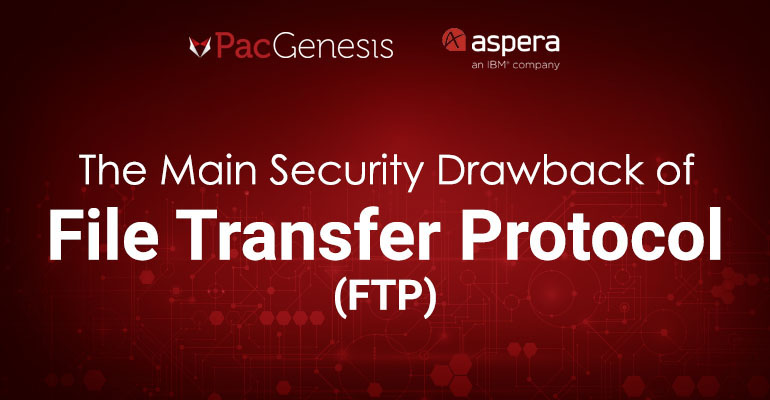The Main Security Drawback of File Transfer Protocol (FTP)

TL;DR — FTP Security: What You Need to Know
FTP, the classic protocol for transferring files across networks, remains popular due to its simplicity—but it was never designed with modern security in mind. By default, FTP transmits credentials and data in clear text, leaving it vulnerable to eavesdropping, credential theft, and man‑in‑the‑middle attacks.
To secure FTP in today’s environment, organizations must adopt stronger alternatives and mitigations: switch to FTPS (FTP over TLS) or SFTP, enforce strong authentication, restrict access via firewalls, and implement logging and intrusion detection. With proper safeguards, you can retain efficient file transfers while greatly reducing the risk of interception, unauthorized access, and data tampering.
Why Traditional FTP Falls Short in Today’s Security Landscape
Today’s businesses primarily function on getting data to the right place at the right time. Developed 30 years ago, the file transfer protocol (FTP) is an application layer protocol that is used for transferring files between a client and a server. Unfortunately, this protocol doesn’t scale well to large numbers of connections and only supports three data structures: file, record, and page structure.
In today’s standards, it cannot scale to support needs like any-to-any data transfers, large file ingestion, and cloud-native transfer. Most importantly, it is not a secured protocol as users do not have the ability to encrypt and protect data.
The Main Security Drawback of FTP
Because it doesn’t offer data encryption, FTP exposes data transmission to many vulnerabilities. When a file is sent using this protocol, data, usernames, and passwords are all shared in plain text, a hacker can access this information with little to no effort.
It’s also vulnerable to a brute force attack, which can break down passwords that are weak or used repetitively. The hacker can use specific techniques to capture transmitted data and decode it. FTP is also vulnerable to spoofing attacks, where the hacker poses as a user or device on the network. These types of attacks typically happen on public Wi-Fi networks. When your company falls under federal compliance norms like PCI DSS, HIPAA, and GLBA, having an unsecured way to transfer data can be especially dangerous.
Using Aspera as an FTP Alternative
While FTP is one of the oldest protocols in use today, it has many security risks. It can be a useful tool for moving information from your computer to a server, but it does not offer the security, speed, or reliability that your company needs.
IBM Aspera eliminates bottlenecks and risks associated with the outdated technology of FTP. Using its patented FASP technology to deliver data, it offers built-in security for data transfers using the standard open-source OpenSSL toolkit. Aspera also provides secure authentication of the transfer endpoints, on-the-fly encryption, and integrity verification for each transmitted datagram.
On top of its security efforts, Aspera also moves file sets at maximum speed by fully utilizing the available bandwidth. Aspera’s unique adaptive rate control also delivers higher performance than FTP without impacting business network traffic. Instead, it shares the bandwidth to accommodate existing FTP, web browsing, and other TCP traffic.
Learn More About Aspera with PacGenesis
With IBM Aspera, you can securely transfer your data anywhere. It offers a complete portfolio of software products and technologies. It can provide your company with the highest level of performance for every file transfer and use case, no matter the industry. With Aspera, you can easily collaborate, distribute, automate, share, synchronize, stream, and migrate.
PacGenesis is an IBM Gold Business Partner, helping businesses focus on scalable data transfer and workflow solutions. If you have questions about more secure alternatives to FTP or Aspera, contact us today for a consultation.
To learn more about PacGenesis, follow @PacGenesis on Facebook, Twitter, and LinkedIn or visit us at pacgenesis.com.
FTP’s Security Drawbacks (Infographic)





